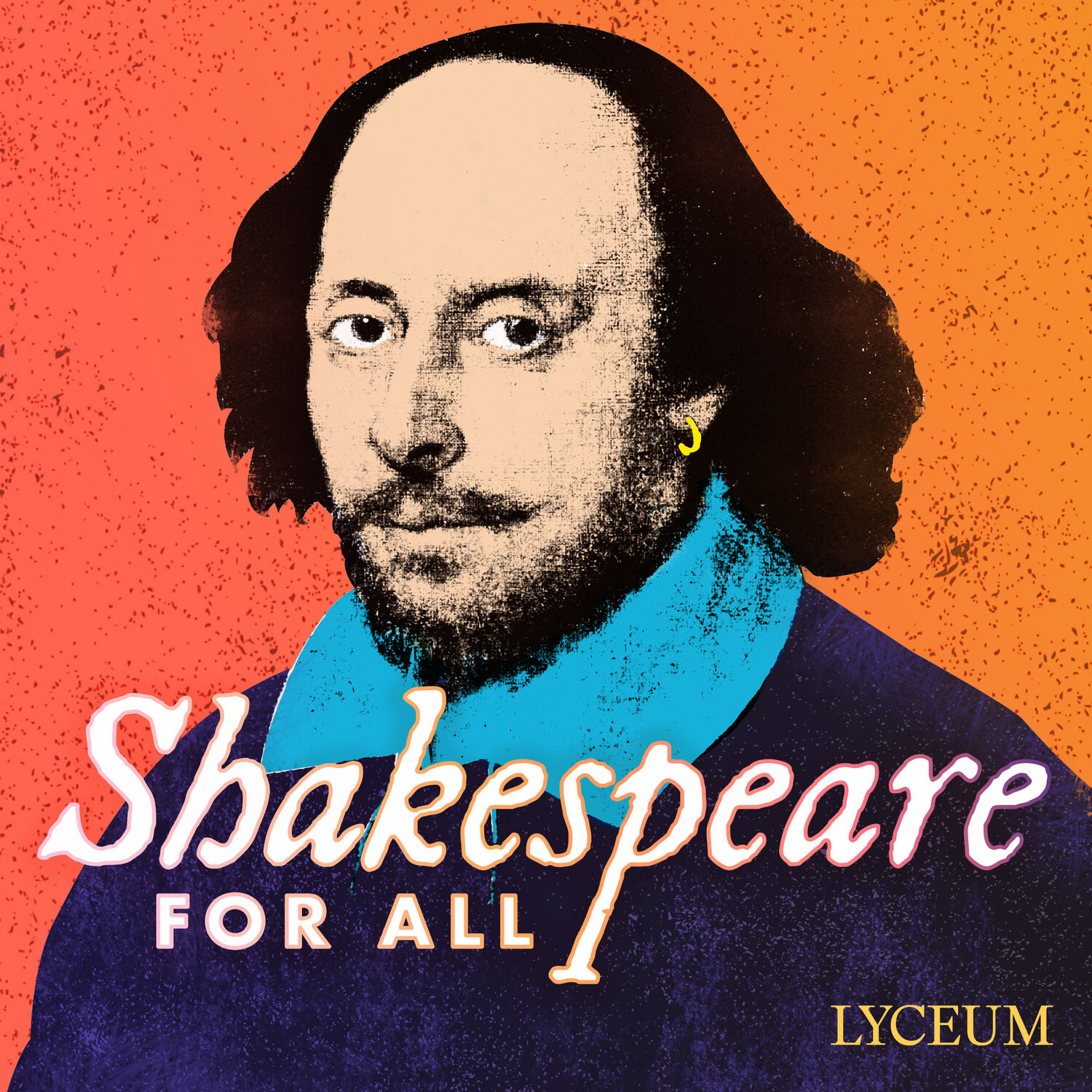Antony and Cleopatra
“AS IF THE WORLD SHOULD CLEAVE”
What You'll Learn
The story and historical background of Antony and Cleopatra
How the play creates conflicting and compelling perspectives on its main characters
How Shakespeare combines history, romance, and myth to create a tragic tale that transcends tragedy
Course Outline
Episode 1: Summary of the play with historical context
Episode 2: Analysis of the characters and their values, and the cultures and myths that shape them
Episode 3: Actors’ recordings of key speeches from the play and discussion of those speeches
Works Consulted for this Course
Cohen, Walter. “Introduction,” Antony and Cleopatra, in Shakespeare, William. The Norton Shakespeare. Edited by Stephen Greenblatt, Walter Cohen, Suzanne Gossett, Jean E. Howard, Katharine Eisaman Maus and Gordon McMullan. 3rd ed. New York: W. W. Norton & Company, 2016.
Garber, Marjorie B. Shakespeare After All. New York: Pantheon Books, 2004.
Kermode, Frank. Shakespeare's Language. New York: Farrar, Straus, Giroux, 2000.
MacDonald, Joyce Green. Women and Race in Early Modern Texts. Cambridge: Cambridge University Press, 2002.
Loomba, Ania. Shakespeare, Race, and Colonialism. Oxford: Oxford University Press, 2002.
Marshall, Cynthia. “A Modern Perspective: Antony and Cleopatra.” Folger Shakespeare Library. <https://shakespeare.folger.edu/shakespeares-works/antony-and-cleopatra/antony-and-cleopatra-a-modern-perspective/>
Carol Rutter, “Shadowing Cleopatra,” in Shakespeare, William. Antony and Cleopatra: Authoritative Text, Sources, Analogues, and Contexts, Criticism, Adaptations, Rewritings, and Appropriations. Edited by Ania Loomba. New York: W.W. Norton & Co, 2011.
Shakespeare, William. Antony and Cleopatra. Edited by John Wilders. The Arden Shakespeare. London ; New York: Routledge, 1995.
Shakespeare, William. Antony and Cleopatra: Authoritative Text, Sources, Analogues, and Contexts, Criticism, Adaptations, Rewritings, and Appropriations. Edited by Ania Loomba. New York: W.W. Norton & Co, 2011.
Smith, Emma. This Is Shakespeare. New York: Pantheon Books, 2020.
Antony and Cleopatra, the last of Shakespeare’s Roman plays, is an epic story that begins with the material of politics and history but expands into the realm of romance, poetry, and myth. Following the events of Julius Caesar – Caesar’s assassination and the triumph of Mark Antony and Octavius Caesar in the resulting civil wars – Antony and Caesar are now joint rulers of Roman Empire. But Antony has left behind Rome and his imperial duties to be with his beloved Cleopatra, the captivating queen of Egypt. Personal and political rivalries bring Antony and Cleopatra to war with Caesar, in a conflict in which “the greater cantle of the world” is at stake. In the end, the lovers are forced out of the field of politics, but enter the space of legend. In this course, you’ll learn the story of Antony and Cleopatra, study two of the most monumental personalities that Shakespeare ever created, and discover how these characters descend into and transcend tragedy
In Part 1, you’ll be guided through a detailed account of the story with commentary by Joyce MacDonald, Professor of English at the University of Kentucky. This episode includes key background and context for the play’s historical source material. The summary is told using the language of the play itself, placing key quotations in context to help you understand where these lines come from and what they mean.
Part 2 explores the play’s varied and conflicting perspectives on its leading characters. From the Roman point of view, Antony and Cleopatra are figures who fall from greatness, and their story is a tragedy or even, at times, farce; but from other points of view, Antony and Cleopatra represent a kind of success that could scarcely be achieved or even conceived of in Rome. The episode analyzes the play’s characters, language, and mythic archetypes to ask how the play makes so many viewpoints compelling, and where these competing perspectives leave the audience when the play comes to its end.
Part 3 features close-readings of three key scenes in which Antony and Cleopatra articulate their cosmic self-conceptions in language so transcendent that it helps transform their vision into reality.
You can hear the third episode of this course for free below. For access to the full course and all of Season Two, subscribe today on Himalaya Learning. Use the promo code BARD for 30 days free.
Speeches and Performers
Enobarbus, Act 2, “The barge she sat in …” (Andrew Woddall)
Antony, Act 4, “I will o’ertake thee, Cleopatra …” (Scott Ripley)
Cleopatra, Act 5, “I dreamt there was an emperor Antony … ” (Dame Harriet Walter and Dame Janet Suzman)
Course Instructor
Joyce MacDonald
Professor of English at the University of Kentucky
Joyce MacDonald is Professor of English at the University of Kentucky. MacDonald’s new book, Shakespearean Adaptation, Race, and Memory in the New World, was published in 2021 by Palgrave Macmillan and explores MacDonald’s particular fascination with how race appears in early modern drama and how it can function in post-Renaissance responses to Shakespeare's plays and poems. In 2018, MacDonald was elected a trustee of the Shakespeare Association of America, and she is a member of the editorial boards of the journals Shakespeare Studies and Borrowers and Lenders: The Journal of Shakespeare and Appropriation, as well as of two book series, Palgrave Shakespeare Studies and Cambridge Elements in Shakespeare and Text. This year, MacDonald will begin a term on the executive committee of the Adaptation Studies Forum of the Modern Language Association. MacDonald is also in the process of editing two early modern plays: Aphra Behn's Abdelazer, for the Other Voice in Early Modern Europe series from University of Toronto Press, and Antony and Cleopatra, for Cambridge Shakespeare Editions.



